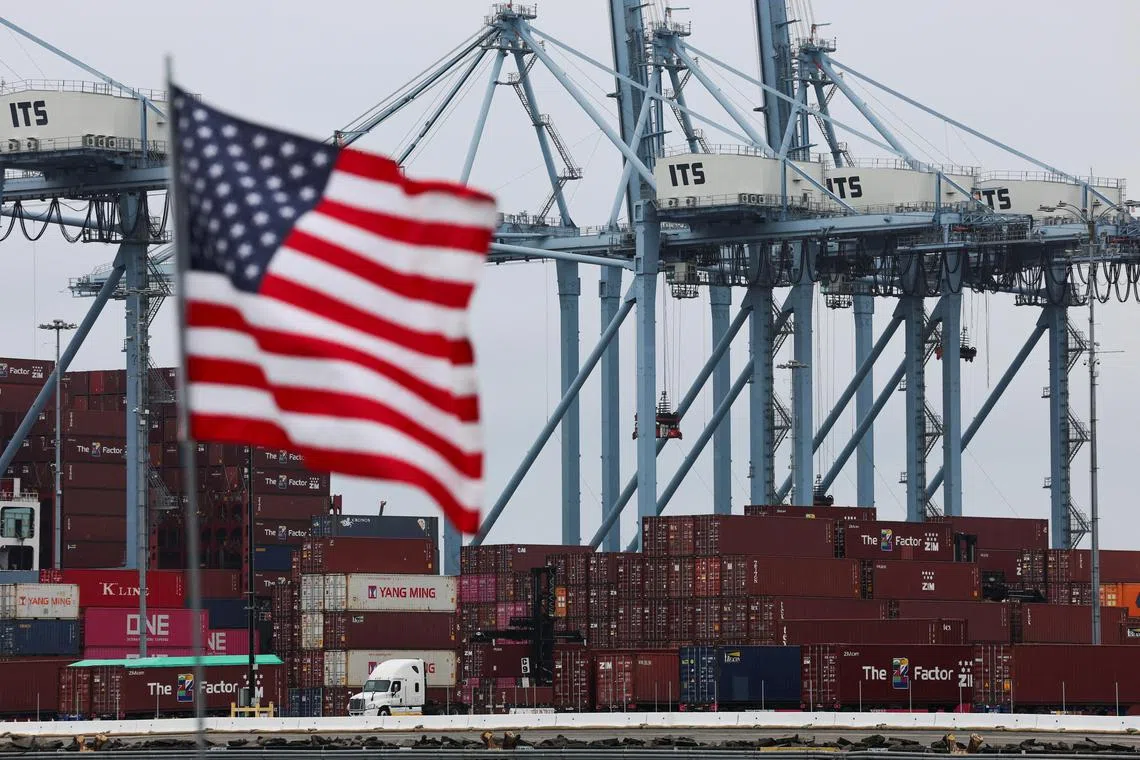US companies, consumers are paying for Trump’s tariffs, not foreign firms
Sign up now: Get ST's newsletters delivered to your inbox

US companies are stomaching the cost of higher tariffs and starting to pass it on to American consumers.
PHOTO: REUTERS
NEW YORK – Who is paying for US President Donald Trump’s tariffs? So far, American businesses and consumers.
General Motors was the latest US company
That helps explain why car prices did not rise in last week’s inflation data, while robust price increases for other commonly imported goods like toys and appliances showed those tariff expenses are being passed on to consumers.
Meanwhile, import prices excluding fuel were up notably in June, suggesting foreign companies are not shouldering the burden by offering US firms lower prices – challenging the President’s claims that other countries pay the rate.
While customs duties are giving a significant boost to US revenues, the data shows that those coffers are being filled domestically.
“The top-down macro evidence seems clear: Americans are mostly paying for the tariffs,” Mr George Saravelos, global head of FX research at Deutsche Bank, said in a note on July 22. “There is likely more pressure on US consumer prices in the pipeline.”
Many economists agree, especially as relatively tame readings in the consumer price index in 2025 underscore companies’ hesitation to pass on tariffs to customers.
That has also been evident in the producer price index, where the rate of increase in a measure of margins for wholesalers and retailers has slowed sharply in recent months.
“With little relief on import prices, domestic firms are stomaching the cost of higher tariffs and starting to pass it on to consumers,” Wells Fargo economists Sarah House and Nicole Cervi said in a note last week.
“The recent rise in import prices points to foreign suppliers generally resisting price cuts,” they added.
Granted, there are some signs that foreign suppliers are absorbing part of the impact to keep goods flowing to the US. Export prices in Japan have contracted for three straight months, and the country’s carmakers cut prices to the US in June by a record, according to data going back to 2016.
But for many foreign companies, the slide in the US dollar has incentivised them to raise their invoice prices to compensate, according to Wells Fargo.
And Deutsche Bank’s Mr Saravelos said the pressure on US companies so far to bear tariff costs is another headwind for the US dollar, which is already on its worst start to a year since the 1970s.
Forecasters doubt US corporations will sacrifice profits for much longer.
3M raised its earnings outlook last week as shifting production and pricing changes will help mitigate the impact of tariffs. Nike is planning “surgical” price hikes to help soften the impact, as the company expects the tariffs to increase costs by about US$1 billion.
“If consumers and foreign firms are not bearing tariff costs, domestic firms are. That is something that eventually should be reflected in corporate earnings announcements,” Citigroup chief US economist Andrew Hollenhorst said in a note on July 22.
“We will be listening this quarter, but firms may still emphasise uncertainty and (perhaps rightly) expect that the burden sharing can shift in coming months.” BLOOMBERG


